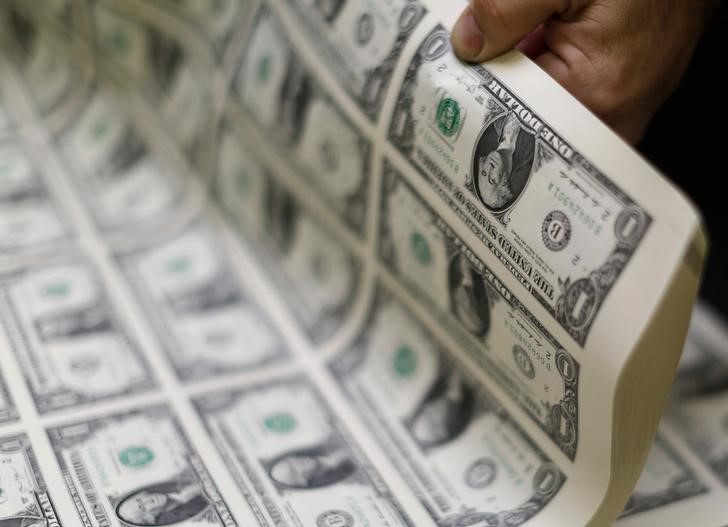* Dollar dips as European stocks fall
* Chinese FX reserves decline, but less than feared
* Commodities currencies trade on firmer footing
By Patrick Graham
LONDON, Feb 8 (Reuters) - The dollar turned lower against the euro in Europe on Monday as stock markets resumed their decline, wiping out gains based on Friday's U.S. jobs report.
A rise in oil prices during Asian trading helped commodity-linked currencies like the Australian and Canadian dollars gain, but that advance faded as crude turned lower.
Concern over economic growth last week drove the dollar to its worst performance in more than four years, until solid numbers on U.S. unemployment and wage growth helped it stabilise on Friday.
"Ultimately the dollar is still likely to trade on a weaker footing," said Lee Hardman, a currency economist with Bank of Tokyo-Mitsubishi-UFJ in London.
"We adjusted lower on the outlook for U.S. growth last week and obviously the data on Friday showed the labour market is improving. But we need to see evidence of that continuing."
The Aussie dollar was up 0.5 percent against its U.S. counterpart by 0943 GMT AUD=D4 . The Canadian dollar gained 0.2 percent CAD=D4 and the Norwegian crown a quarter percent against the euro. NOK=D4
The euro rose 0.2 percent to $1.1179 EUR=EBS while the dollar was flat at 116.92 yen, giving back some earlier gains. JPY=EBS Against a basket of currencies, the dollar fell 0.2 percent to 96.847 .DXY after Friday's gains, the dollar lost 3.6 percent against the yen last week, its biggest weekly drop since July 2009. It had been under broad pressure as the market priced out the risk of rising U.S. interest rates this year.
Worries about slowing global growth and a loss in U.S. economic momentum in the fourth quarter have convinced many the Federal Reserve will not raise rates anytime soon.
"What we are seeing today is a correction after overwhelming selling in the dollar we saw last week. It is just unwinding of positions, not fresh bets against the yen," said Koichi Takamatsu, executive director of forex trading at Nomura Securities.
The other big risk of the past month for markets - China's problems with growth, debt and preventing a large currency depreciation - may be on hold for the week-long Lunar New Year holiday.
Data over the weekend showed the decline of Beijing's foreign exchange reserves slowed to just below $100 billion last month. Expectations were for a much worse figure.
Analysts said the numbers were still a warning that Beijing must stem a flight of domestic capital or be forced to allow the yuan CNH= to weaken.
"My impression is that there is virtually no reserve armoury big enough to cope with widespread capital outflows, if capital is allowed to flow relatively freely," Societe Generale (PA:SOGN) strategist Kit Juckes said in a morning note.
"Which is just to say that even if the market does calm down over the festive period, this is a story which will return." (Editing by Larry King)
